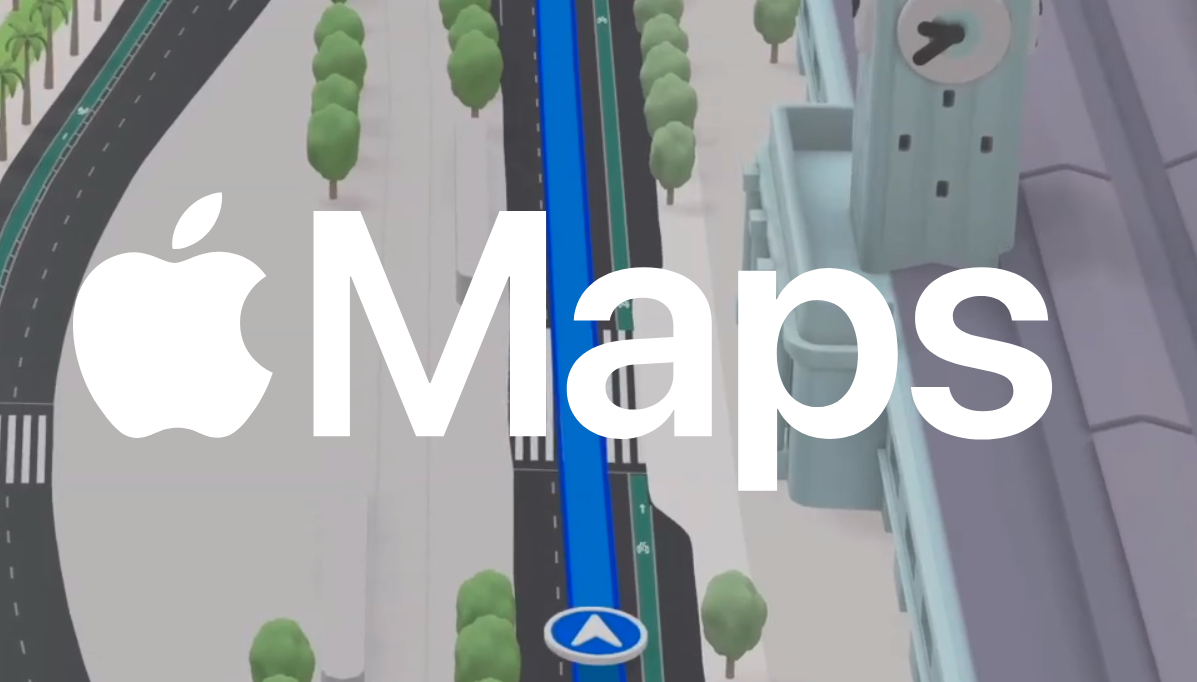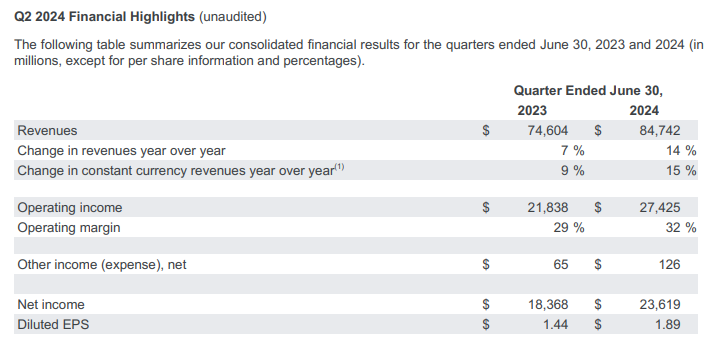Apple Webmaps, Bing AI SERP, Google Q2: $85B

Apple Maps on the Web
Apple has had a Mac desktop Maps application for years. But now Apple Maps is expanding to the web: Safari for the desktop (Mac) and Chrome and Microsoft Edge for PCs – only in English for now. It's not clear why this is happening now vs. two years ago or five years ago. Apple Maps for the iPhone launched in 2012 and was initially ridiculed for myriad problems, bugs and errors. Apple executive Scott Forstall was fired over the disastrous rollout and so was then-head of Apple Maps Richard Williamson. CEO Tim Cook apologized at the time and referred people to Waze, Mapquest, Google and Bing Maps. Arguably Waze's success is attributable to Cook's apology and endorsement. Google acquired Waze in 2013 to keep it away from competitors (specifically Facebook) and has been cannibalizing its features and technologically consolidating it with Google Maps ever since. In the 12 years since the launch of Apple Maps, the company has been rebuilding the product, and it has more recently become the preferred mapping application for many iOS users. In a separate mapping development, open-source platform Overture Maps announced general availability of its open maps data sets.

Our take:
- The move to the browser expands Apple's competitive reach vs. Google Maps. However, Google search provides G-Maps with massive advantage.
- A year ago, we estimated that Apple is delivering about 5% of the visits and roughly 10% of the calls driven by the Google Local Pack.
- There are a number of SEO implications but we'll have to see how Google treats Apple Maps. Apple announced native reviews but hasn't really promoted it.
Bing's AI Organized SERP
Microsoft has introduced "Bing generative search," which some people quickly called its version of Google's AI Overviews. It's actually more like Google's "AI Organized Pages," which the company previewed at its developer conference in May. According to the Microsoft blog post, "This new experience combines the foundation of Bing’s search results [with LLMs] ... It understands the search query, reviews millions of sources of information, dynamically matches content, and generates search results in a new AI-generated layout to fulfill the intent of the user’s query more effectively." Microsoft provides an example SERP for the query "what is a spaghetti western?" But if you didn't know better, you'd think it was an ordinary SERP. There is an AI summary but the rest of the page is AI organized and influenced and there's a TOC for navigation. One thing that's significant is that traditional search results are featured in a right column so they're not "pushed down the page," compared with Google's AI Overviews.

Our take:
- Microsoft said, "early data indicates that this experience maintains the number of clicks to websites and supports a healthy web ecosystem," and even "increases the number of clickable links."
- This is a more "mature" product and more thoughtful design than Google's current AI Overviews.
- While Bing Generative Search might prompt Google to rethink AI Overviews, it's not clear it Bing can do anything that makes inroads against Google.
Google Q2: 'Another Excellent Quarter'
Earlier this week Google reported strong revenues that were better than expected in most areas except YouTube advertising, which was still up 13%. Total revenue was $84.7 billion, up 14% YoY. Search ads were responsible for $48.5 billion (57.3%) of total ad revenue. Google Cloud crossed $10 billion in quarterly revenue with $1 billion in operating profit. As you might imagine, there was considerable discussion of AI and AI Overviews on the earnings call. "We are pleased to see the positive trends from our testing continue as we roll out AI Overviews, including increases in Search usage and increased user satisfaction with the results," said CEO Sundar Pichai. He also claimed, "[W]e see even higher engagement from younger users aged 18 to 24 when they use Search with AI Overviews." (Define engagement.) Asked about the go-forward plan for AI Overviews, Pichai made bland statements (e.g., "All the feedbacks [sic] we have seen are positive"). He deferred to CBO Philipp Schindler on the question of AI Overview monetization. Schindler dutifully responded, "We announced that soon we’ll actually start testing search and shopping ads in AI Overviews for users in the U.S."

Our take:
- Google touted its leadership position in AI generally, which is largely accurate – though ChatGPT is used 2:1 vs. Gemini.
- Google will be aggressively promoting Gemini and AI during the Olympics, which start tomorrow. Some of that will be free via a deal with NBCU.
- It feels like there's some gaslighting going on. The collective AIO experience of the SEO community is quite different from what Google portrays.
Recent Analysis
- Black Hat Tactic Moving Google Map Pins Still Ongoing, by Mike Blumenthal.
- The Google Local SERP Today, by Mike Blumenthal.
- ICYMI: Hindsight: Self-Preferencing Behind Google Maps' Rise, by Greg Sterling.
Short Takes
- Google Maps pin scam: discussion (Sherry Bonelli, Mike Blumenthal).
- Top three reasons why Google reviews might get filtered.
- Content marketing must go beyond keyword research and SEO.
- Why it's time to focus on brand marketing and building your brand.
- Best practices for internal linking from Google.
- Reddit blocks search engines not named Google.
- Amazon and BBB file joint lawsuit against fake review broker.
- Informal poll finds majority of SEOs saw Google updates as positive.
- Yelp now offers RFQs for brands, new ads, measurement tools.
- Google Play wants to become a consumer shopping destination.
- You'll be using Google's new Merchant Center by September.
- Google to put $5B more into self-driving car unit Waymo.
Listen to our latest podcast.

How can we make this better? Email us with suggestions and recommendations.

